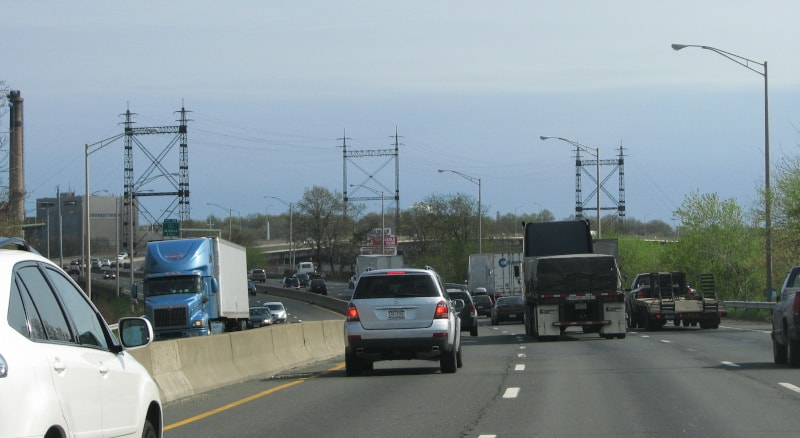
While proponents of tolling, including Connecticut Gov. Dannel Malloy (D), continue to push the installation of tolls on the state’s highways, the president of the Motor Transport Association of Connecticut (MTAC) says a new $10 million study is money that could better be used elsewhere.
“Several toll studies have already been done,” Joe Sculley tells FreightWaves. “This study is not necessary. This is $10 million that could have gone to infrastructure instead of a consulting firm.”
Malloy issued an executive order in June calling for the $10 million feasibility study and the money was formally approved by the state’s Bond Commission last week. It will look at how much revenue adding tolls to Connecticut highways, including Interstates 95 and 91, the two main routes crossing the state. Proponents believe tolls can raise $1 billion a year.
The state has previously conducted studies on tolls, but Malloy, who is not seeking reelection, insisted that this new study is vital to giving the next governor and legislature the insight it needs into the revenue possibilities.
“A new governor and a new legislature will be in session and can do whatever they please if they disagree with this action, before one dollar is spent,” Malloy told the Bond Commission before its vote. “But we need to allocate the funding now if we want qualified vendors to actually reply to an RFP.”
State. Rep. Chris Davis was one of three votes against the proposal. “We have heard time and time again from the people of Connecticut that they don’t see a need or a desire to have a $10 million study,” Davis said. “The state has spent millions of dollars studying tolling already.”
The state used to have tolls on several of its highways, abolishing them in 1985 following an accident in 1983 when a tractor-trailer truck slammed into a toll plaza, killing seven.
Whether tolls become a reality or not, the real issue in Connecticut, according to Sculley, is the use of transportation fuel taxes on non-infrastructure related projects, including spending millions (along with federal dollars) to build a 9.4-mile busway connecting the capital city of Hartford with surrounding towns. That project, CT Fastrak, cost the state $113 million (it was $570 million in all, including federal dollars) to build and $25.1 million a year to run, according to Senate Republican President Len Fasano. Fasano said the service generates just $3.2 million a year in revenue.
Sculley says that until the state starts spending transportation fuels taxes on transportation infrastructure projects, MTAC is not in favor of tolls or fuel tax increases.
“The problem is spending,” he notes. “Part of the problem in Connecticut is taxes that are supposed to go to roads and bridges are not going to roads and bridges.”
According to Governing.com, Connecticut’s fuel tax revenue has remained fairly constant over the past 18 years, ranging from a low of $502 million in 2007 to a high of $578 in 2003. From 2011 to 2014, taxes came in at about $502 million each year.
Additional funding goes into the state’s Special Transportation Fund, which has seen an increase in revenue each year since 1999 with the exception of two – 2001 and 2013, when it was essentially level funded. In 2018, it is estimated the fund generated $1.59 billion in revenue.
The fact that the money has remained steady leads Sculley to claim that the need for tolls is misrepresented by toll proponents. “Let’s start spending road taxes on roads before we talk about more taxes,” he says.
According to a letter from the state’s Office of Policy and Management to the comptroller’s office, dated June 20, 2018, the Special Transportation Fund is expected to end fiscal 2018 with an operating surplus of $117.3 million, more than double the previous month’s estimate, and a fund balance of $214.9 million.
Tolls are sure to be a hot topic during Connecticut’s governor’s race this fall. In Rhode Island, the state has instituted a truck-only toll that has resulted in a lawsuit against the state from the American Trucking Associations (ATA) and three carriers in the state. In Connecticut, gubernatorial candidate Ned Lamont has proposed a similar tolling program for Connecticut.
“I know that improvements to roads, bridges, trains, airports, public transit, and broadband will help catalyze our state’s economic growth, so I recognize that the people of our state cannot not afford to make these investments. That is why I support electronic tolling on heavy trucks that are coming in from out of state, which use our roads toll free and create significant wear-and-tear,” Lamont’s policy statement on his website says.
Lamont has promised that if elected, he would not approve any budget that uses Special Transportation Fund revenues for non-infrastructure related projects.







